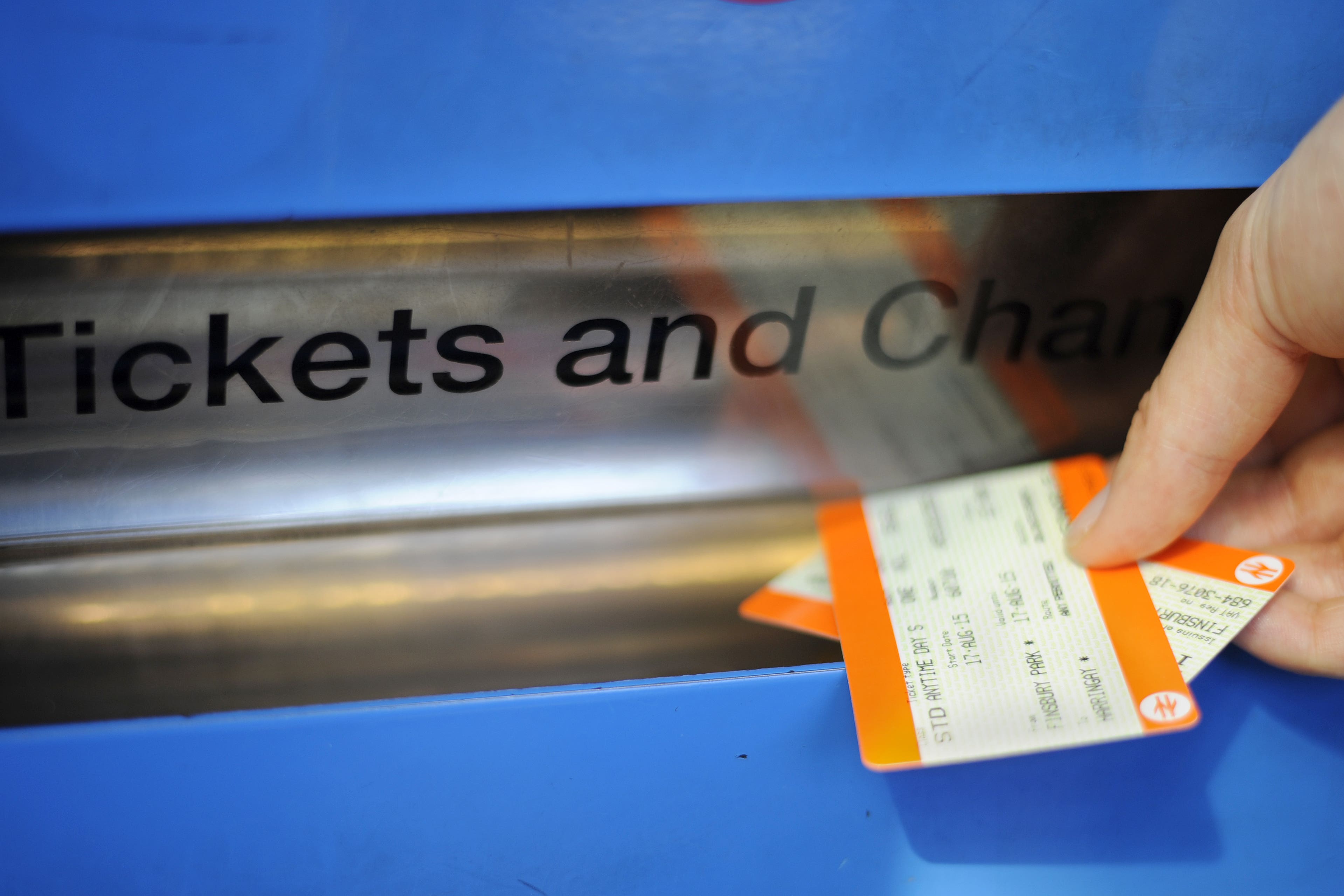Rail fares to fluctuate based on demand in trial scheme
The Department for Transport said the LNER trial is an attempt to better manage capacity while also raising revenue.

Rail fares will fluctuate based on demand under a trial to be announced by Transport Secretary Mark Harper.
The cost of travel on some London North Eastern Railway (LNER) services will be more or less expensive depending on how many seats have been filled.
This is an attempt to better manage capacity while also raising revenue, the Department for Transport said.
Mr Harper will set out an extension of pay-as-you-go ticketing for train journeys across south-east England.
He will also confirm plans to expand single leg pricing across the entire LNER network, which runs between London King’s Cross and Scotland via the East Coast Main Line.
That means a single fare will always be half the cost of a return.
Currently, an off-peak single between Durham and London, for example, costs just £1 less than a return.
Many one-way fares will be almost halved as a result of the reform, according to the DfT.
LNER, a publicly owned operator, has trialled single-leg pricing on some of its routes since 2020.
The DfT said it will consider rolling out the system across all of Britain’s rail network depending on the success of the extended pilot scheme.
Delivering the annual George Bradshaw address to rail industry leaders in central London on Tuesday night, Mr Harper will provide an update on the future of Great British Railways – a new public sector body to oversee Britain’s railways – and how it will work alongside the private sector as “a guiding mind to co-ordinate the entire network”.
He is expected to say: “Today I am setting out the Government’s long-term vision for the future of our railways.
“The industry’s road to recovery after Covid has been tough, with reform badly needed to win back that lost passenger revenue while putting customers first.
Thirteen years of failure has seen fares soar, more services than ever cancelled, while failing operators continue to be handed millions in taxpayers’ cash
“Today’s announcement is the latest example of this Government taking bold decisions and getting on with the job.
“Growing the economy is rightly one of the Prime Minister’s top five priorities, and the measures I announce today will unleash more competition, innovation and growth in an important sector of our economy.”
Andy Bagnall, chief executive of industry body Rail Partners, said: “Radical change to the fares system is an idea whose time has come.
“Industry has been pushing for reform for many years so that rail fares reflect the changing ways people are travelling, accelerated by the pandemic.”
Labour’s shadow transport secretary Louise Haigh said: “Whichever ticket you buy, passengers are paying more for less under the Conservatives’ broken rail system.
“Thirteen years of failure has seen fares soar, more services than ever cancelled, while failing operators continue to be handed millions in taxpayers’ cash.
“The next Labour Government will put passengers back at the heart of our railways, and build the infrastructure fit for the century ahead, unlocking jobs and growth.”
England’s regulated fares, which include season tickets on most commuter journeys, some off-peak return tickets on long-distance journeys and flexible tickets for travel around major cities, will increase by up to 5.9% from March 5.
Analysis of Office of Rail and Road data by the PA news agency found the equivalent of one in 13 services was cancelled during the four weeks to January 7, representing the worst reliability in records dating back to April 2014.
This covered a period when operators were badly affected by an overtime ban introduced as part of industrial action while severe weather also caused disruption.
Bookmark popover
Removed from bookmarks